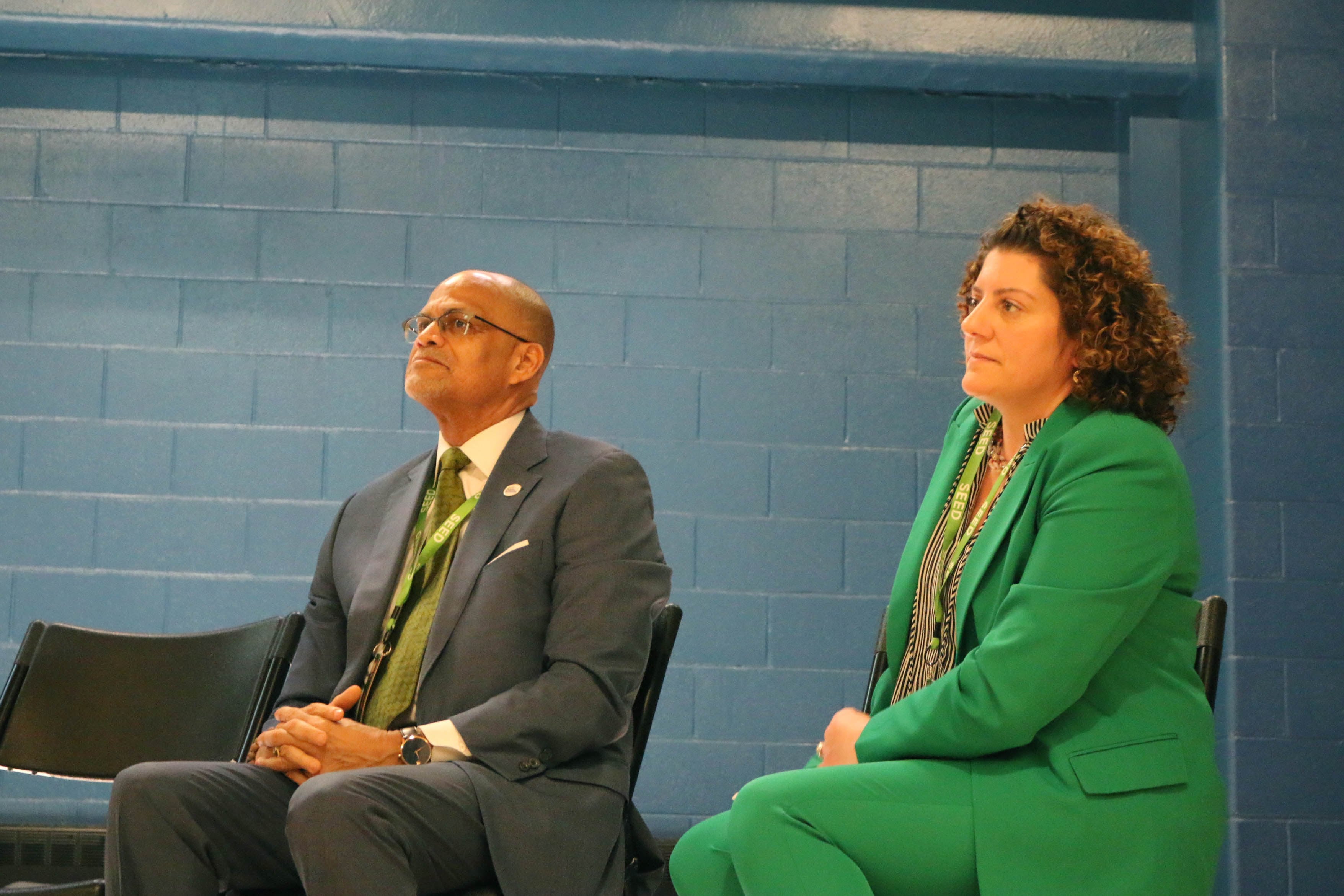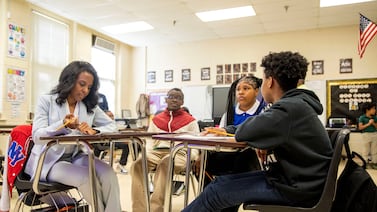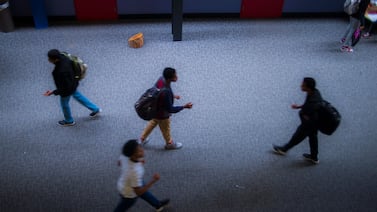Sign up for Chalkbeat New York’s free daily newsletter to keep up with NYC’s public schools.
New York City’s Education Department is creating a new division to support students with disabilities and children learning English as a second language, officials announced Monday.
The Division of Inclusive and Accessible Learning, or DIAL, will be led by Christina Foti, who is being promoted from her role as chief of Special Education — where she has earned accolades from advocates and families — to Deputy Chancellor for Inclusive and Accessible Learning.
Mayor Eric Adams first announced the move Monday in a Daily News op-ed.
The new division will have a $750 million budget and 1,300 staffers, pulling staff and funding that were already directed toward students with disabilities and English learners but were housed in a different part of the Education Department bureaucracy. The city’s special education advisory council, composed of parents, students, educators, and advocates, will help support the new division.
“We’re going to give it our all,” Adams said Monday at Samara Community School in the Bronx. “We’ve heard it over and over and over again about this population of achievers who are not given the opportunity that they deserve.”
The move represents the latest reshuffling for administrative staff who oversee special education and multilingual learners. The Education Department previously had a deputy chancellor position responsible for special education and multilingual learners, though that role was eliminated in 2018.
More recently, special education and multilingual learners fell under the division of teaching and learning overseen by Deputy Chancellor Carolyne Quintana. In March, schools Chancellor David Banks disbanded that unit, and Quintana left the department. The staff then reported to Danika Rux, the deputy chancellor of school leadership.
Advocates largely praised the move to give students with disabilities and multilingual learners their own division and deputy chancellor, as city officials have historically struggled to serve those students, who represent a significant chunk of the school system.
Roughly 21% of students in New York City are classified as having disabilities and requiring special education services through Individualized Education Programs, or IEPs, according to data from the 2022-23 school year. About 14% of students across the five boroughs are learning English as a new language.
Both groups have seen major challenges in recent years.
City officials have long failed to provide all students with disabilities with the therapies and instruction they’re entitled to, driving thousands of families to seek out private schools or services that now cost the city more than $1 billion each year.
Under Adams, the Education Department has made some reforms to the special education system, including modestly expanding programs that serve students with autism.
But some of Adams’ highest-profile efforts have fallen short. A major promise to provide every student with a disability access to a preschool seat has gone unfulfilled. Hundreds of children are still languishing without one, despite a legal requirement to offer them seats.
And even after his schools chief promised to comply with a federal court order to address lengthy delays in providing services to families, the city has not fully implemented most of the order’s requirements.
And with about 38,000 migrant students entering the city’s public schools over the past two years, many schools have struggled to keep up with the demand in language services, mental health support, and helping them with basic needs such as food and clothing. Many of their families are living in shelters they are only able to stay in for 60 days, which adds a layer of stress as parents navigate long commutes for their children when they move or try to figure out the notoriously difficult yellow school bus system.
On Monday, special education advocates praised Foti’s promotion and the establishment of the new division, though they remained wary over the city’s track record on supporting students with disabilities. Foti received multiple standing ovations during Monday’s press conference from Education Department staff and advocates.
Paullette Healy, an advocate and parent of a child in District 75, which exclusively serves students with disabilities, said Foti’s promotion was “a long time coming.”
“Having a thoughtful and effective leader helming this historic division is a major win for struggling families raising children with learning differences in NYC,” she said.
Maggie Moroff, a special education policy expert at Advocates for Children, noted Foti’s new position “makes a lot of sense.”
“This feels like a smart move and a statement of commitment to the students her division will be supporting,” she said. “We will, of course, be watching closely and hoping it ensures all students with IEPs and learning differences can be successful in the NYC schools.”
Alex Zimmerman is a reporter for Chalkbeat New York, covering NYC public schools. Contact Alex at azimmerman@chalkbeat.org.
Julian Shen-Berro is a reporter covering New York City. Contact him at jshen-berro@chalkbeat.org.






